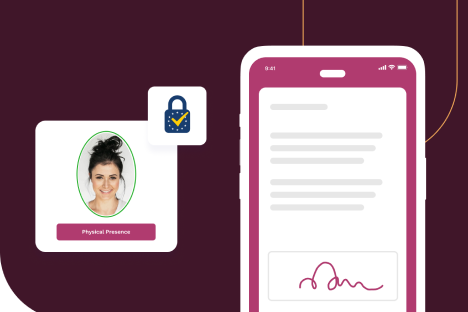Top 9 HR Use Cases that require Qualified Signatures in the EU
In the European Union, a Qualified Electronic Signature (QES) is the highest level of electronic signature, providing legal equivalence to a handwritten signature under the eIDAS Regulation (Electronic Identification, Authentication and Trust Services). This type of signature is particularly relevant in HR-related processes, where the integrity, authenticity, and legal validity of documents are critical.
ZealiD is seeing a strong and fast growing influx of global enterprise driven partly by increasing esignature requirements from member states, but also as a result of conservative approaches to risk management in the area of personnel and personal data. So either mandatory by law, or as a result of internal risk mitigation, QeS becomes a requirement.
Main HR Documents and Use Cases for Qualified Signature in the EU:
-
Employment Contracts
Use Case: Ensures the authenticity and integrity of the contract, providing legal assurance that both the employer and employee have agreed to the terms.
Benefit: A QES on an employment contract can eliminate the need for physical signatures, speeding up the hiring process and providing stronger legal evidence in case of disputes.
-
Amendments to Employment Contracts
Use Case: When updating or amending employment terms (e.g., salary changes, job title updates), a QES ensures the changes are legally binding and acknowledged by both parties.
Benefit: Guarantees that any modifications are securely documented and reduce the risk of disputes over the terms.
-
Termination Agreements
Use Case: QES can be used to sign mutual termination agreements or other documents related to the end of employment.
Benefit: Provides legal certainty and helps avoid potential disputes by ensuring both parties have officially agreed to the terms.
-
Confidentiality Agreements (NDAs)
Use Case: Ensures that employees are legally bound by confidentiality obligations, which is particularly important for sensitive information.
Benefit: Provides robust legal protection for the company’s intellectual property and other confidential information.
-
Policy Acknowledgments
Use Case: Employees acknowledging receipt and understanding of company policies (e.g., code of conduct, data protection policies) can use a QES to legally confirm their compliance.
Benefit: Provides the company with legally binding proof that employees have agreed to and understood key policies, which can be critical in regulatory compliance.
-
Pension and Benefits Documentation
Use Case: Signing pension plan documents, insurance agreements, or other benefit-related contracts.
Benefit: Ensures that all parties are legally committed to the agreed terms, which is important for financial and retirement planning.
-
Data Protection Agreements
Use Case: Consent forms and agreements related to the handling of personal data under GDPR regulations.
Benefit: Provides legally binding proof of consent, which is critical for compliance with data protection laws.
-
Official Communications
Use Case: Formal communications such as disciplinary notices, promotion letters, or other legally significant notifications.
Benefit: Ensures that these communications are legally valid and traceable, protecting both the employer and employee in case of disputes.
-
Payroll Documentation
Use Case: In some cases, QES might be used for payroll-related documents, such as salary statements or tax declarations, especially where legal or regulatory requirements demand it.
Benefit: Ensures the authenticity of sensitive financial documents.
Benefits of Using Qualified Electronic Signatures in HR
- Legal Certainty: QES provides the highest level of legal assurance under eIDAS, ensuring that documents are recognized in all EU member states. In short, the legal department, and compliance department will rest their case.
- Security: QES ensures the integrity and authenticity of the signed document, significantly reducing the risk of fraud. Increasingly important in the age of impersonation fraud hitting companies high and low.
- Efficiency: Digital signing processes can significantly speed up HR workflows, reduce paperwork, and improve the overall efficiency of HR operations. One ZealiD client has subsidiary directors based in the US, manually signing documents for EU subsidiaries with 3-6 month turnaround time.
- Compliance: QES helps ensure compliance with various EU regulations, such as GDPR, by providing secure and traceable consent and agreement processes.
- In summary, Qualified Electronic Signatures are critical in HR processes where the legal validity and security of documents are of utmost importance. They are particularly useful in contracts, agreements, and compliance-related documents within the EU.


Learn more
How ZealiD customers have improved their HR workflows?
ZealiD has been working with the most innovative companies to better their HR workflows and agreement management.
Would you like to learn more about how we have achieved this?



